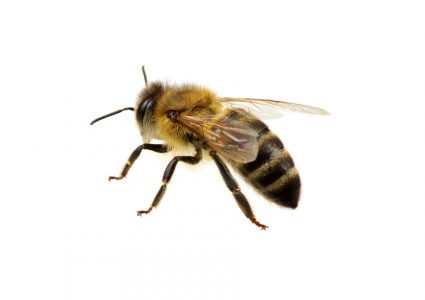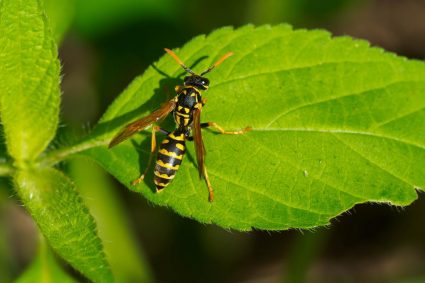
Cats can be charming and adorable creatures, but not everyone appreciates their presence in their outdoor spaces. Whether it’s because they’re digging up your garden, using your yard as a litter box, or causing a ruckus at night, you might be looking for ways to deter them. This comprehensive guide will provide you with a variety of solutions on what to put outside to keep cats away.
To keep cats away from your outdoor spaces, you can use natural deterrents such as citrus peels, vinegar, or cat-repellent plants like lavender and rosemary. Physical barriers like prickly mats, chicken wire, or motion-activated sprinklers can also be effective. Commercial cat repellents and homemade remedies like pepper or coffee grounds can further deter cats. Remember to reapply these deterrents and repellents periodically, especially after rain.
Natural Deterrents
One of the most effective and humane ways to deter cats from your yard is by using natural deterrents. Cats have a strong sense of smell, and there are certain scents they find unappealing.
Fragrant Items
Scatter fresh orange or lemon peels around your garden, or use organic citrus-scented sprays. Cats dislike the strong scent of citrus and will likely steer clear. Other scents that cats tend to avoid include vinegar, lavender, lemongrass, citronella, and eucalyptus.
Cat-Repellent Plants
There are also several plants known to repel cats. These include lavender, rosemary, rue, curry herb plant, pennyroyal, scaredy cat plant, lemon thyme, and oregano. These plants emit scents or have textures that cats find unpleasant. Consider planting these around the perimeter of your yard or near areas where cats frequent.
Physical Barriers
Physical barriers can also be effective at keeping cats out of certain areas.
Prickly Mats and Mulch
Use prickly rubber mats or sharp mulch to cover the ground in areas where cats like to dig or rest. The uncomfortable texture will deter them from walking or lying down in these areas.
Chicken Wire
Lay chicken wire flat on the ground around your plants. Cats dislike walking on chicken wire, so this can be an effective deterrent.
Motion-Activated Sprinklers
Motion-activated sprinklers can startle cats with a burst of water when they enter the protected area, conditioning them to avoid it in the future.
Commercial Cat Repellents
There are also several commercially available cat repellents that you can use.
Sprays and Granules
Products like Nature’s MACE Cat Repellent can be sprayed on the ground or plants to deter cats. Make sure to follow the product instructions and reapply as needed, especially after rain.
Ultrasonic Devices
Ultrasonic devices emit a high-frequency sound that cats find uncomfortable. These can be effective at keeping cats out of your yard, especially if used in conjunction with other deterrent methods.
Homemade Remedies
If you prefer a DIY approach, there are several homemade remedies you can try.
Pepper and Coffee Grounds
Sprinkle crushed pepper, cayenne pepper, or coffee grounds around the areas you want to protect. These substances can irritate cats and discourage them from entering the area.
Essential Oils
Mix essential oils that cats dislike (such as lavender or citronella) with water and spray the mixture around your yard.
Remember to reapply natural deterrents and repellents periodically, especially after rain, to maintain their effectiveness.
Conclusion
Keeping cats out of your yard doesn’t have to involve harmful methods or harsh chemicals. By using a combination of natural deterrents, physical barriers, commercial repellents, and homemade remedies, you can effectively keep cats away from your outdoor spaces. Always remember to use humane methods and consider the wellbeing of the cats and other wildlife in your area. With a little patience and creativity, you can create a cat-free zone that is still welcoming to other wildlife and enjoyable for you.
Frequently Asked Questions
Can I use mothballs to keep cats away from my garden?
While mothballs may deter cats due to their strong smell, they contain chemicals that are harmful to cats, humans, and the environment. Therefore, it’s not recommended to use mothballs as a cat deterrent.
Will putting out water for birds attract cats?
While bird baths can attract birds to your yard, they may also attract cats who are interested in hunting. If you have a bird bath, consider placing it in a location that is difficult for cats to reach, such as up high or in an area surrounded by cat-repellent plants.
Can I use ammonia to keep cats away?
Ammonia can indeed deter cats due to its strong smell. However, it’s important to use it cautiously as it can cause harm to cats, humans, and other animals if ingested or inhaled in large amounts. Always dilute ammonia with water if you choose to use it, and consider other safer options first.
Are there any breeds of cats that are less likely to be deterred by the methods mentioned?
Cats’ reactions to deterrents can vary depending on their individual personalities and experiences, rather than their breed. Some cats may be more persistent or less sensitive to certain smells or textures. If you’re having trouble deterring a particular cat, try using a combination of methods or switching to a different deterrent.
Will these methods also keep away other animals, like dogs or wildlife?
Some of these methods may deter other animals as well. For example, citrus scents and prickly mats may deter dogs as well as cats. However, the extent to which these methods affect other wildlife will depend on the particular species and their individual behaviors. Always consider the potential impact on other animals when choosing a deterrent method.











